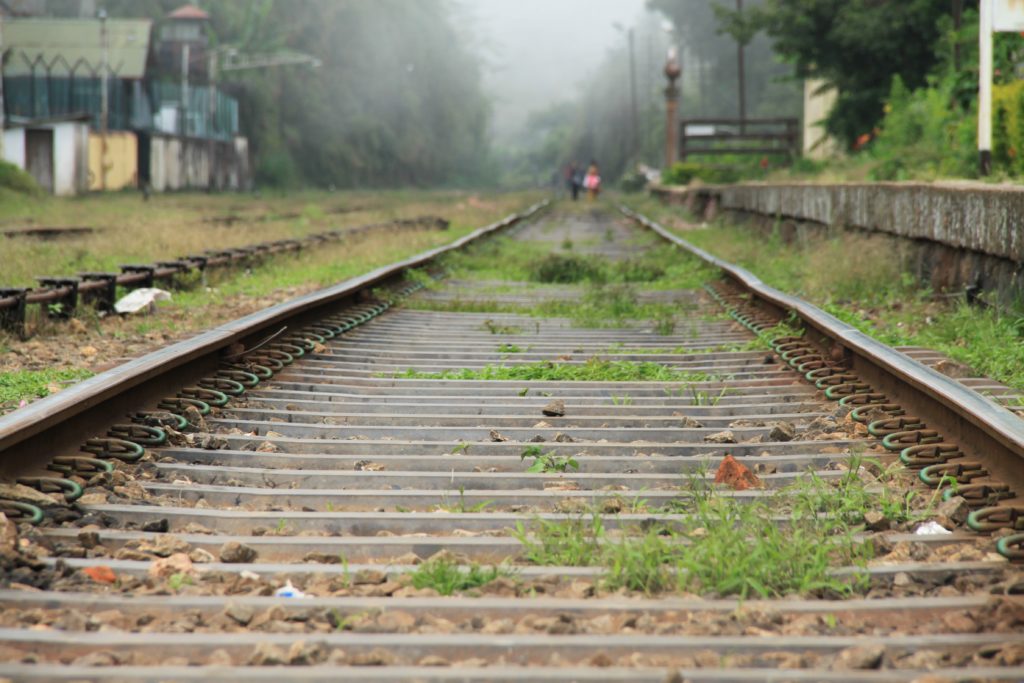Public Commentary / 17 February 2015
Philanthropy and inclusive transitions

Those who work on transitions are often asked if they can point to one element that appears to be essential across societies for a successful shift away from internal armed conflict or repression. While a simplistic answer cannot do full justice to the diversity of history, place and moment, it is fair to ask about the necessary, if not sufficient, conditions that made a crucial difference over the dozens of national transitions since the early 1970s.
In August 2014, the guest editors of this Alliance special feature invited 12 foundation leaders and an equal number of development and transition specialists to the New York office of the Ford Foundation to grapple with that question. (The full list of attendees is on p58.) The invitation was framed around our own emerging answer: that inclusive social, economic and political pacts are needed for there to be a truly stable and legitimate transition. In almost all stalled transitions we have reviewed, one or more dimensions of inclusion was missing. Usually one finds longstanding divisions in society, whether ethnic, religious or class-based, aggravated by continuing systemic practices of exclusion. Those fault lines, if not forcefully addressed, undermine the achievement of a widely accepted social covenant among all groups and prevent the formation of a cohesive national identity.
While there was general agreement at the meeting about the centrality of inclusive processes, a lively discussion ensued about the optimal roles philanthropy can and should play in strengthening such processes when a transition is under way.
Opportunities in tough contexts
The conversation began with comments about key challenges in transitions – from power vacuums to weak institutions, ongoing violence and economic disparities. The theme of ‘starting conditions’ was considered central. Some states have deeply unfavourable conditions at the onset of a transition. Thus voting freely – even in some cases repeatedly – fails to bridge divides without a new, inclusive dynamic. ‘In times of post-war transition it is critically important to build a platform for inclusive national dialogue from different sectors of society. Yet it is these moments when it is hardest to achieve due to lack of trust,’ notedGeorge Khalaf of the Synergos Institute.
It was pointed out, nevertheless, that it is precisely in periods of transition that fragile and conflict-affected states have the opportunity to transform their social and political dynamics and pursue a new national path. Progress may be slower and harder in places with poor starting conditions, but there are inclusive nation-building steps that can be taken even in the most unforgiving of environments. ‘Dialogue matters. Key sectors and individuals must find ways to reach out and work together across political and ideological divides and establish a new vision, sometimes away from the public eye,’ observed UNDP director Jordan Ryan. ‘Civic groups, protest movements, political parties and others also have to shift – from a protest to a governance mode, and often very quickly. Mandela’s leadership in South Africa was a classic example of this shift, as was Lech Walesa’s in Poland.’ The kinds of relationships private philanthropy builds with grantees over time make it easier to have these difficult conversations.
Though transition support for improved governance can be valuable, many commented that private funders can make more impact (and are uniquely suited to) supporting the development and protection of a vibrant civil society that can shape and inform political processes, and ‘help change discourses and narratives’. But civil society itself may be deeply fractured. As Seth Kaplan observed: ‘Often the international focus is on the state-society relationship. But in fragile states a much stronger focus is needed on the society–society relationships that have so much influence on how countries evolve. Forging a social covenant early in the process, joining together major social groups, is crucial to ensuring that an inclusive and legitimate political process will take root and become widely accepted. In a transition, populations are more likely to forgive delays and ineffectiveness if they feel that there is a genuine effort at equity and fairness.
Others emphasized the unique opportunity in a transition to understand and constructively engage in the local politics of change – to engage in the reform opportunities that enhance the interplay of the forces that move a society forward. This includes not only civil society, but also special state-sponsored bodies set up for transitional justice, constitutional drafting, and similar nation-building purposes.
Learning and measuring
A recurrent theme of the roundtable was caution over philanthropy’s current embrace of metrics and measurement. Stephen Grand, a transition specialist and Fellow at Brookings Institution, noted: ‘The message that I hear [in this conversation] is that some of the most important societal goods cannot be measured – which is in part the reason for the market failure that private philanthropy is needed to correct – and foundations need to get back to supporting such traditional knowledge-creating institutions within society as schools, libraries, the media and culture.’
Transitions are by definition times when the potential for impact is high. But the field currently lacks the right indicators to measure the things that matter most during these moments – security, empowerment, engagement and inclusion. That can lead to counterproductive ‘bean counting’ based on short time horizons, which in turn can lead to unwarranted conclusions of failure. As one participant commented: ‘We need a metric on how to assess and support processes – not just results.’
Likewise it was noted that effective learning and measuring depend on something prior: a serious effort to understand the make-up of the state and the society, as well as the dynamics of the particular transition. Independent Diplomat director Carne Ross observed that the gap between outsider and insider knowledge is often profound – yet surmountable. Donors, who often support but do not implement programmes on the ground, could make more active use of their international and local grantee networks to obtain regular expert briefings to help them understand emerging risks and opportunities.
How do you fund?
A lot of emphasis was placed on the need for relationship-oriented philanthropy in transition environments – especially having in mind the goal of inclusiveness, described by one participant as ‘the most important building block for strengthening resilience’. Key actors in fragile and conflict-affected states often need to build up the skill-set to talk and debate in a civilized way; to learn to step out of traditional, often patriarchal power relationships; and to build coalitions. Funders can encourage all of this by respectfully requiring NGOs and social leaders they support to work together.
To be effective, funders may start building dialogue and cross-group relationships even before the conflict ends or a transition begins. Key things to support may include projects focused on: power sharing; the building of common identity and narratives; knowledge-producing and relationship-building institutions; and leadership development. Philanthropy can generally do more to go beyond its comfort zones – to pursue what one termed ‘radical inclusion’, meaning the creation of meeting spaces across divided ethnic, racial, gender, and class groups. A donor commented, ‘You have to provide support that helps persuade the civic actors you know to temper themselves so that they can bridge across differences.’ This may include the very youth groups whose protests provided the impetus for change, but who now may need the skills of political coalition-building.
Who do you fund?
One participant commented that sometimes it seems like every donor is circling around the same few individuals in a transition – often those with political savvy and connections in the international donor community. The result is missed opportunities to strengthen emerging leadership in the cultural field, community leaders, young scholars, or historians who can help interpret the current moment in light of a country’s past.
Other participants mentioned that philanthropists should build on the new energy in corporate responsibility, business leadership and social entrepreneurship. In particular, opportunities to build local philanthropic capacity are often overlooked in transitions. For example, investment banks have great potential influence on the way newly created wealth is invested socially in transitions. Philanthropy advisory services within financial organizations, CSR consultants and business schools are places where social change discussions are happening – yet foundations rarely engage them. Ironically, while transitions should be times when non-profit entities can flourish, the opposite is increasingly the case today. Social enterprises and entrepreneurship incubators may have more freedom of action to build capacity for change in difficult environments than NGOs.
Universities were also cited as potential partners. As one participant stated, ‘they produce the citizens of tomorrow’ – and are often institutions ripe for the introduction of more experiential and community-focused learning methods that can have an impact on thousands of students and citizen leaders. At the same time, scholars and professors can be uniquely at risk during the periods leading up to a transition or in unstable periods immediately afterwards. Scholar rescue programmes for Latin America in the 1980s made a huge difference when the time came to rebuild post-military governance there. Faculty members who had been invited to teach and continue their scholarship in northern universities returned to become parliamentarians, party leaders, and even presidents of new democratic governments.
Regarding the Arab uprisings in particular, it was noted that one tragedy has been the way in which young voices and aspirations have been sidelined. In many places that are in turmoil, the generational shift has produced smart, globally connected and impatient young cohorts. They are demanding a political stake and economic opportunity, but frequently lack access to the new professional opportunities that transitions can produce, resulting in marginalization or new resentment. It was emphasized that this could be a crucial area for more focused and creative programming.
Understandably, not all donors present were comfortable with the idea of working with governments. But it was noted that state bodies are multi-layered, and ‘even within the worst bureaucracy, one can find pockets of excellence. Funders should stay open to working with decentralized as well as centralized actors; formal as well as informal ones.’
When do you leave?
While it is straightforward to tell the leaders of opposing camps that inclusion and dialogue are often the best way forward, convincing a highly polarized or sectarian-based citizenry that they will be better off abandoning old loyalties is a major challenge. It is a particularly thorny problem in fragile states, including many in the Arab region, and can stall transitions for years or decades, as in Lebanon. ‘The forces that allowed survival during the war (confessional identities) were the very forces that stood in the way of inclusive post-war dialogue,’ George Khalaf commented. ‘In other words, what enabled survival during the war, disabledany post-war harmony and reconstruction. We were asking people to let go of allegiances (Sunni, Shiite, Maronite, or Druze) that helped them during times of need and to reach for an elusive overarching national identity.’’
These are precisely the problem areas around inclusion where transition specialists and philanthropists could mine their experiences for examples of success, distilling some of the positive actions that in the past have encouraged the growth, over time, of cohesive national polities. Such examples will underscore just how worthwhile it can be to stay engaged and help work through the practices of exclusion that can otherwise hold a society back. As Jonathan Fanton, former president of the MacArthur Foundation, remarked: ‘While our conversation focused on countries in the early stages of transition, I believe philanthropy should stay with countries like Nigeria where the transition is incomplete. Another conversation might include Russia where I believe it is important for foundations to remain involved even though the current situation is troubling.’
Concluding thoughts
One thing that almost all roundtable participants agreed upon was the invaluable gift of independence that private philanthropy enjoys, yet may not be using to full effect. As Penelope Lewis of the World Bank remarked: ‘Risk aversion among foundations – especially younger, newer philanthropies – is growing. Why is this and how can we encourage foundations to use the unique advantages they possess which sets them apart from other funders? Countries in transition need precisely what foundations can offer. And it is in countries in transition that philanthropy has the potential to make a significant impact.’
While the range of forward-looking suggestions made by participants is too long to include here, Robert Templer offered a useful encapsulation of some of the key ideas that surfaced about better ways for philanthropy to support transitions:
‘Find people who have had no contact with outside funders. Give smaller test grants and see what people do with them. Fund people who are outside the NGO world to come up with great ideas. Fund universities to become repositories of ideas. Scale back on log frames and risk analyses and reference letters and get people to apply on the basis of their vision expressed how they know how to express it. Think politically in the way locals see politics.’
Originally published in Alliance Magazine.



